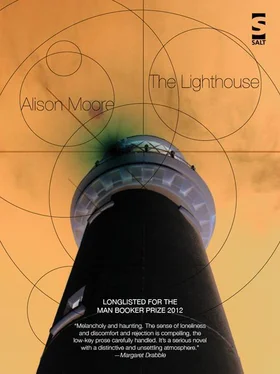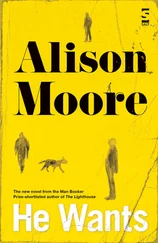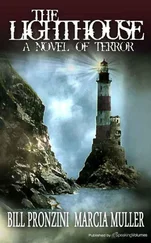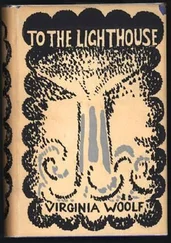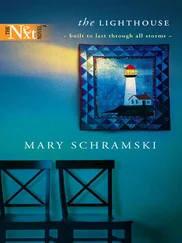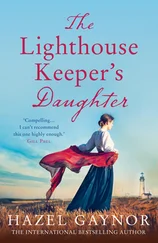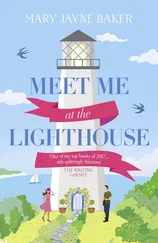His father has always made fun of him for not being able to hold his drink, as if he were not just the same. He ridiculed Futh for not knowing how to drive in his thirties, for still hitchhiking in his forties. When Futh finally took driving lessons and passed his test, his father criticised him for being the kind of driver who did not know the first thing about cars, for running out of petrol and for paying other men even to change a bulb in a headlight. And he mocked him for spending all day long trying to make paper smell like apples. ‘What’s the point of that?’ his father said. ‘You know you can buy actual apples?’ Futh told him about the millions of tiny perfume bottles whose scent would still be there in twenty years. His father said, ‘Real fucking apples. You can eat them.’
Futh’s first memory is of playing under the kitchen table while his mother stewed apples for his dinner. She had the radio on and was humming along while she peeled and cored and chopped the apples and put the pieces in a simmering pan, and the kitchen was full of music and sunlight and the smell of unadulterated apple.
He recalls asking Angela, after they were married, if she could make an apple crumble. Finding her in the kitchen the next day cooking apples, he stood at her shoulder while she worked and he told her about this memory of his mother, how the smell of the apples took him back, and he saw her jaw tighten. The apple crumble came out well, but she did not make it again.
Futh, with sore feet and no need to hurry, arrives at his hotel in the late afternoon. He goes straight up to his room where his suitcase is waiting for him. After showering and taking a nap he goes out again, into the balmy evening, to look around the town before dinner.
Passing a pub with tables on the pavement, he stops and gets himself an unexpectedly huge glass of beer and watches the people walking by. The women his forty-something father brought back to the hotel were young, in their twenties perhaps. But Futh is not looking at the younger women, he is looking at those in their mid-thirties, the age his mother was when she left.
At the age of twelve, he wanted to go to New York as soon as he was old enough. In his twenties, when he could have travelled anywhere he wanted, he visited many cities and countries but he did not go to New York. He told himself that it was because he did not like flying — he generally went on coach tours — but he flew to Tokyo and Montréal. He did not go to New York until he met Angela, who wanted to go there herself.
On the aeroplane, during take-off, he began to imagine vividly there being a fire in the cabin or a terrorist amongst the passengers and being unable to escape. He felt the onset of the anxiety he always feels when flying, and he tried a relaxation technique which he had taught himself from a tape. He looked down at his feet, concentrating on them, breathing slowly and deeply, releasing all the tension in his toes, and in his arches, moving up to his ankles, still breathing slowly and deeply, relaxing his calves and then his knees, breathing slowly and deeply, his thighs… It was dark outside the aeroplane, and some of the passengers were switching off their overhead lights. He concentrated on his abdomen, and on his breathing, beginning to feel heavy, becoming drowsy, and, in the darkening cabin, falling asleep.
He dreamt that he had received a letter from his mother. She had written down her new name and address so that he would be able to find her, but however hard he looked at it he could not read her handwriting.
He opened his eyes with a desperate sense of something vital slipping away from him. Angela, sitting beside him watching a film, told him the new local time. Futh sat rewinding his watch, looking at the hands spinning backwards through the hours until even the date changed.
They went on a tour, on an open-top bus, although the top deck was full so they sat downstairs, people-watching through the windows. Stopped at traffic lights, Futh found himself staring at a woman who was looking in a shop window, whose face he could see reflected in the glass, a striking woman with greying blond hair. Quite slowly, as if she were an animal which might be startled, which might dart away, he got off the bus, approaching and touching her on the arm so that she turned around to look at him. He could not see her eyes through her sunglasses, or any port-wine stain beneath the high neckline of her dress, and she had not spoken before a man interrupted them, asking Futh what he wanted. When Futh failed to reply, the man took the woman’s elbow and steered her away down the street. Futh watched them walking away, and after a while they paused again outside another shop and the man glanced back at Futh and the woman did too, and she took off her sunglasses, but she was too far away now for Futh to see her face clearly. But he had a feeling it was her.
He turned to look at Angela, to gesture through the window of the bus. He wanted to suggest, depending on the look on her face, that they abandon the tour and do the same thing, take a walk down the street, looking at the shop fronts. But Angela was not there. He watched the open-top bus picking up speed on the far side of the junction and disappearing into the distance with Angela on board.
‘I really think it might have been her,’ he said later, back at the hotel, walking down to dinner with Angela. ‘I just had a feeling.’
‘You said the same thing about the woman in Central Park,’ she said. ‘And you had a feeling about the woman in the deli.’
Futh and Angela walked into the hotel dining room, Futh with one hand in his pocket, his fingers wrapped tightly around the little silver lighthouse. He always took the lighthouse with him when he travelled, as if it were his Saint Christopher.
He took it to Germany when he went with his father. It was in his coat pocket when, having given up on the walking, they visited Futh’s Great-Uncle Ernst. Futh had heard his granddad talking about his brother, asking Futh’s father to return to Ernst the silver lighthouse which had been their mother’s. Futh arrived at Ernst’s house with the lighthouse in his kagoul pocket, a secret inner pocket — his father had one in which he kept the passports and Deutschmarks, not trusting the hotel staff.
They did not actually know if Ernst was still alive. If he was, he would be well into his eighties. Nor did they know if he would have remained in his parents’ house, or even if the house was still standing. They did not make contact before going. Their hotel was close enough for a day trip and they went on spec, not really expecting to find Ernst but going anyway, to see what was or was not there.
Arriving at lunchtime, they found the house standing and clearly lived in, well maintained. The road was busy, the only parking space some way from the house. Futh’s father knocked lightly on the front door and then stood back. They waited for what seemed like a long time, noticing the twitching of a net curtain in an upstairs window. They were on the point of turning away and leaving again when the door was finally opened.
Futh was expecting his great-uncle to look like his granddad. Futh had been eight when his granddad died and only remembered him as an ill man, faded and shrunken. But the man who stood in front of them was unexpectedly large and solid.
‘Ernst?’ asked his father, and the man nodded. His father spoke German — a greeting, an introduction — and Ernst, although frowning, stepped away from the door, inviting them inside.
Ernst took their coats, their matching kagouls, and showed them to the living room which was up a flight of stairs. He shooed the cats off the chairs and went to fetch coffee, and a glass of milk for Futh. He was gone for quite a while, and the cats crept out from underneath the furniture, climbing back onto the chairs, settling themselves in the guests’ laps.
Читать дальше
